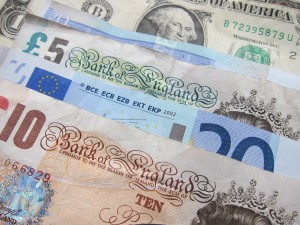What is Forex Trading?
Forex is short for foreign exchange, referring to the practice of exchanging money denominated in one country’s currency for money denominated in another currency. Since the values of currencies are constantly changing in relation to one another, opportunities exist for profit so long as people are capable of identifying and then seizing such opportunities before others can do the same. Forex trading is the practice of trading money held in one currency for the equivalent value held in another currency, no matter if you are trying to profit from the trading or have some other motive in mind. For instance, if you have income based in one currency but an ongoing debt based in another currency you might want to hedge against an appreciation in the debt currency versus the income currency.
Benefits of Forex Trading?
 Forex trading offers the same opportunities for profit as trading in general and some of the same fringe benefits. However, it also has its own particular benefits that make it an attractive investment option:
Forex trading offers the same opportunities for profit as trading in general and some of the same fringe benefits. However, it also has its own particular benefits that make it an attractive investment option:
* Forex trading is fairly cheap to engage in because there is no real limit on how much of your own resources you’re willing to put in. Furthermore, understanding forex trading costs is simple because the costs are actually included in the exchange rates most of the time.
* You should always consider the liquidity of your investments unless you are absolutely confident that you will never need to sell those assets at a moment’s notice some day in the future. Liquidity is how easily an asset can be sold without distorting its value. Foreign currencies are highly liquid because they can be sold quickly and with little change in their value compared to most other assets.
* Part of foreign currencies’ liquidity comes from the fact that forex trading markets operate 24 hours a day barring a short gap on the weekend. This is because people around the world engage in the practice, meaning that an exchange or similar network is always open somewhere in the world and ready for business.
How to do Forex Trading Online?
Setting up the equipment needed to start forex trading online is fairly simple. All you need to do is find a forex broker, set up an account, install a forex trading platform on your computer, and then start trading. You can find brokers by either using a search engine, getting recommendations from friends and family, or by asking around on forex trading forums. Both EarnForex.com and FxPips.com are websites that offer a list of forex brokers, feature comparisons, and customer reviews of listed brokers. Be sure to read the conditions of the brokers that you approach to find out about their prices, their policies, and the support offered. Similarly, find out what trading platforms they use and whether it’s suited to you. Once you’ve set up your account with your broker and installed the trading platform, you can start trading.
Tips for Trading Forex Online!
* Enroll in a finance course or at least pick up some finance resources to get a better understanding of the theory behind movements in forex trading. Blundering about with no idea what you’re doing when you have money on the line is always a bad idea. So take forex trading seriously and prepare well.
* Try forex trading using a demo account with your trading platform before actually risking real money on your decisions. It will help you build your forex trading skills and give you practical experience rather than throwing you into the deep end.
* Adopt a trading strategy that has been proven to be profitable over the long run using historical market data. This will help you act quickly but not rashly on opportunities, while simultaneously helping to cut down on impulsive decision making.
See Also:
- Using Forex to Hedge against Inflation
- Can You Make A Fortune with Forex Trading?
- Top 3 Forex Trading Scams
Guest Post contributed by Justin Epley. Justin is a freelance writer with a longstanding career in trading. His articles appear on various currency and metals trading blogs. Visit www.wonga.com to find out about setting up trading accounts.